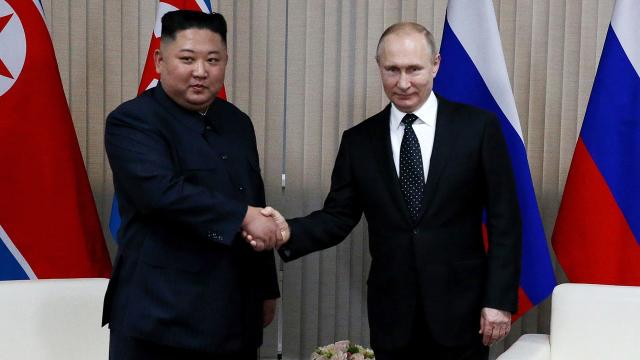On Friday, the White House said that North Korea has delivered more than 1,000 containers of military equipment and munitions to Russia in recent weeks for use in Ukraine.
The recent statement comes a month after Kim Jong Un, the North Korean leader, traveled to Russia’s far east and met Russian President Vladimir Putin, flaring concern among Kyiv’s supporters over the prospect of a possible arms deal.
White House national security spokesman John Kirby told reporters, “We condemn the DPRK (North Korea’s official name) for providing Russia with this military equipment, which will be used to attack Ukrainian cities, kill Ukrainian civilians, and further Russia’s illegitimate war.”
“We will continue to monitor for any additional DPRK arms shipments to Russia.”
In exchange for its backing, Kirby said, “Pyongyang is seeking military assistance from Russia, including fighter aircraft, surface-to-air missiles, armored vehicles, ballistic missile production equipment or other materials and other advanced technologies.”
He added, “This expanding military partnership between the DPRK and Russia including any technology transfers from Russia to the DPRK undermines regional stability and the global non-proliferation regime.”
Between September 1 and October 1, a load of containers was shipped by sea from Najin, North Korea, to Dunay, Russia, according to a graphic provided by the White House.
They were then provided by rail to an ammunition depot near Tikhoretsk in southwestern Russia, some 290 kilometers (180 miles) from the Ukrainian border.
North Korea is a mass producer of conventional weaponry and is known to have a large stock of Soviet-era war material — albeit in unrevealed condition.
Russia has increased production of shells this year to a forecast of 2.5 million, but analysts have urged that could fall short of its needs on the battlefield.
According to Ukrainian figures, Russian forces are firing about 60,000 rounds per day.
While Russia said no agreements were signed during Kim’s visit, Putin said he saw “possibilities” for military cooperation.




